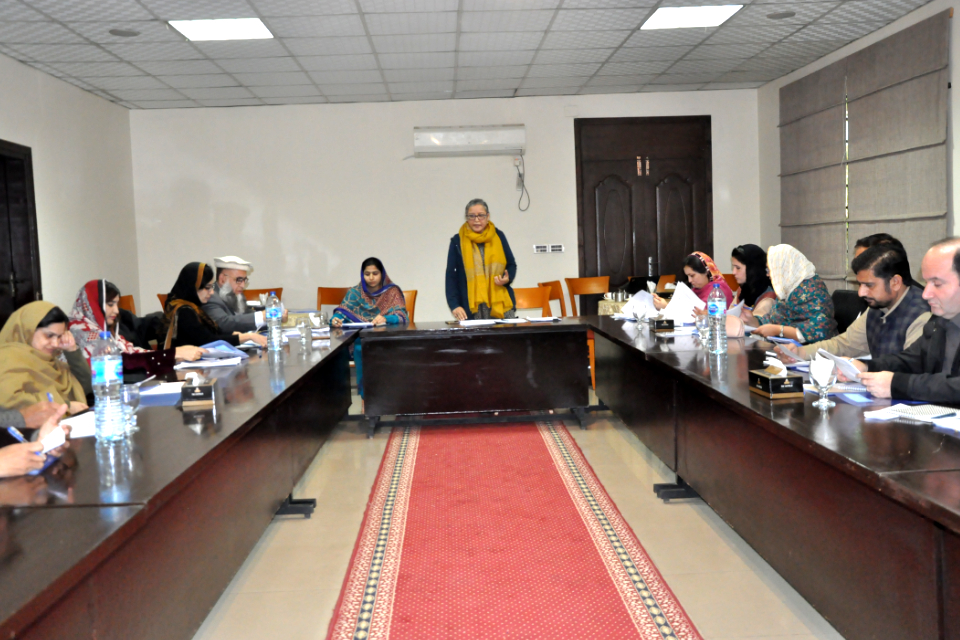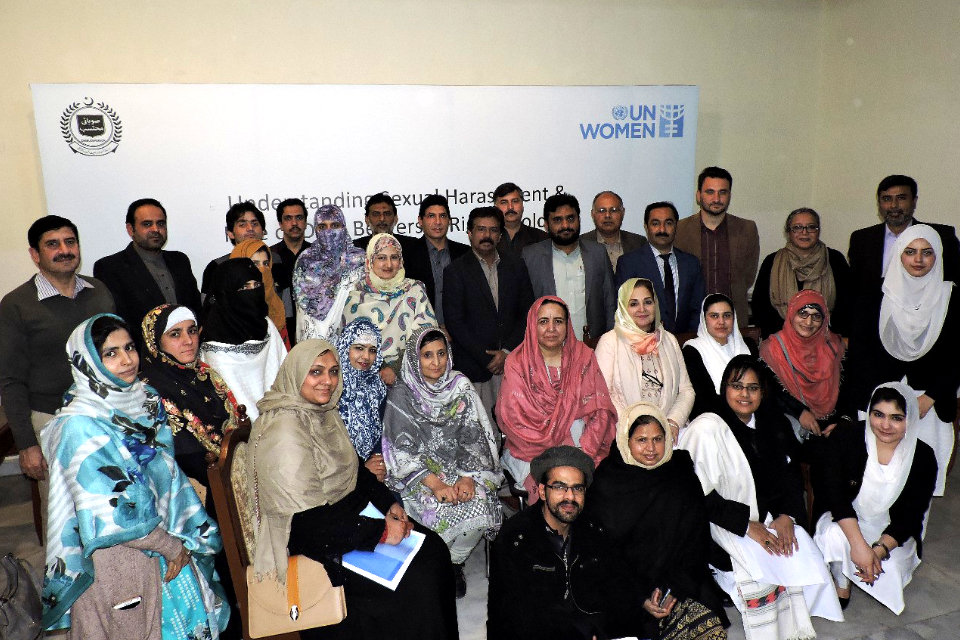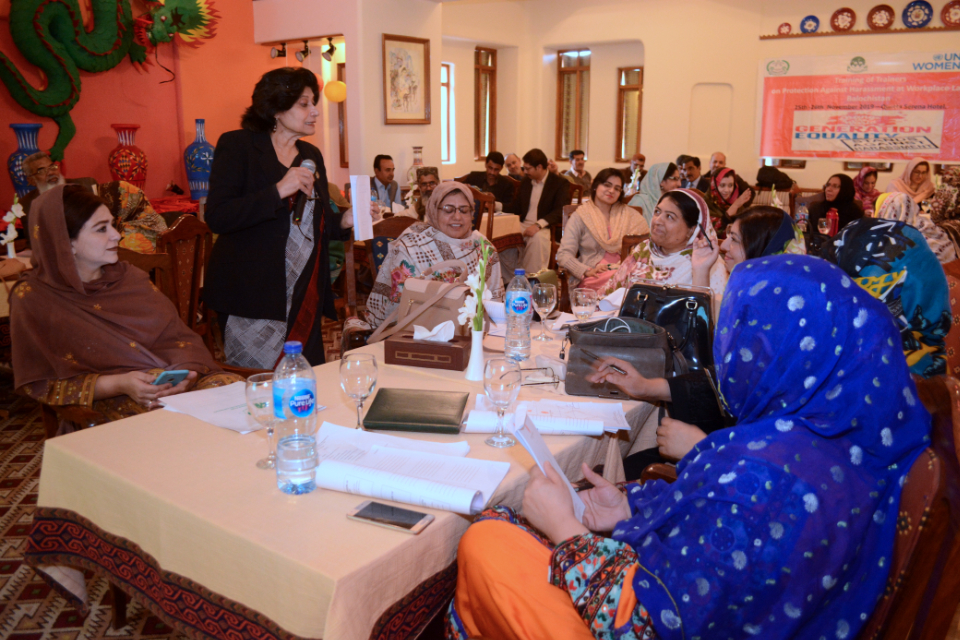Working together to fight sexual harassment and abuse in the workplace with Provincial Offices of Ombudsperson
Date:
Authors: Habib Asgher & Saman Ahsan
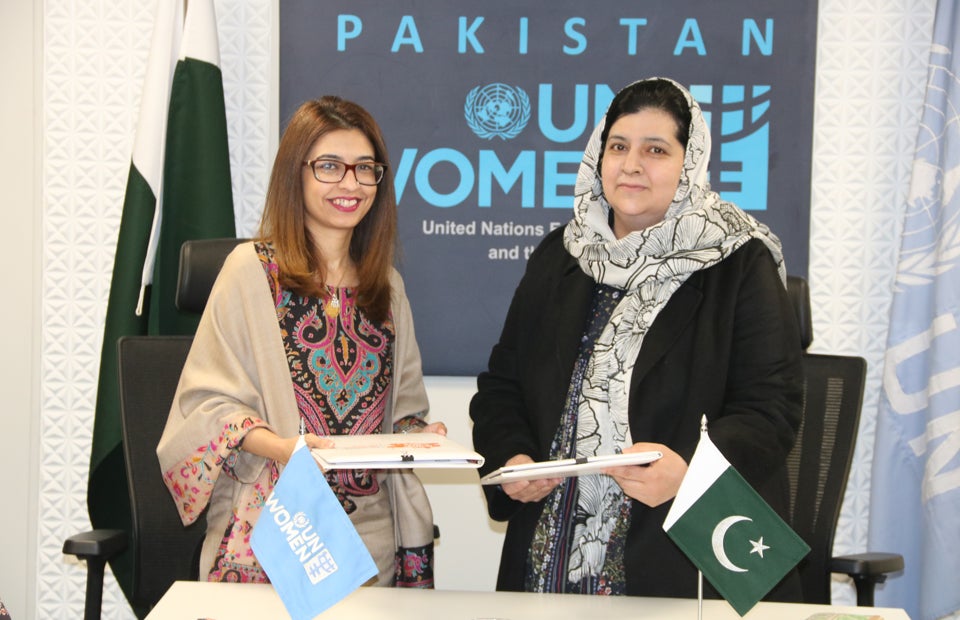
Widespread sexual harassment is a very serious global issue. It continues to be part of working women and girls’ experience in Pakistan as well. Harassment not only affects women and their families, but it also has a negative impact on communities and countries. The economic costs of violence are also very high. According to a study in Cambodia, economic impact of sexual harassment in the garment industry was estimated at $89 million per year. If similar studies are done in other countries, it will give us further insight and to have data backing the serious implications of harassment at the workplace.
Pandemics further exacerbate inequalities and the risk of all forms of violence and harassment against women and girls. The risks and threats of abuse and exploitation for women and girls have increased during COVID-19 in Pakistan due to a variety of reasons including lockdowns, loss of income and employment or decreased incomes of households.
Conducive and safe workplaces can play a pivotal role in increasing women’s active participation in economic activities. There is a greater need to create more awareness about the sensitive nature of this issue and its long-term implications, state obligations, help mechanisms and importance of reporting the incidents of harassment.
Based on evidence from Pakistan and other parts of the world, UN Women has geared up its advocacy efforts with decision makers of the respective government bodies and other network partners. It has highlighted the need for integration of mechanisms to prevent and control incidents of sexual harassment, abuse and exploitation in the national response plan has also been emphasized while underlining the availability of essential services for survivors of violence including technology-based solutions to enhance women and girls’ access to services during lockdown.
Reinforcing its collaborations and partnerships, UN Women has buoyed up its activities with Offices of the Ombudsperson in the provinces of Khyber Pakhtunkhwa (KP) and Balochistan to strengthen existing mechanisms, raise awareness and provide capacity building to Ombudspersons and other public and private actors on the effective implementation and monitoring of current laws to address harassment at the workplace.
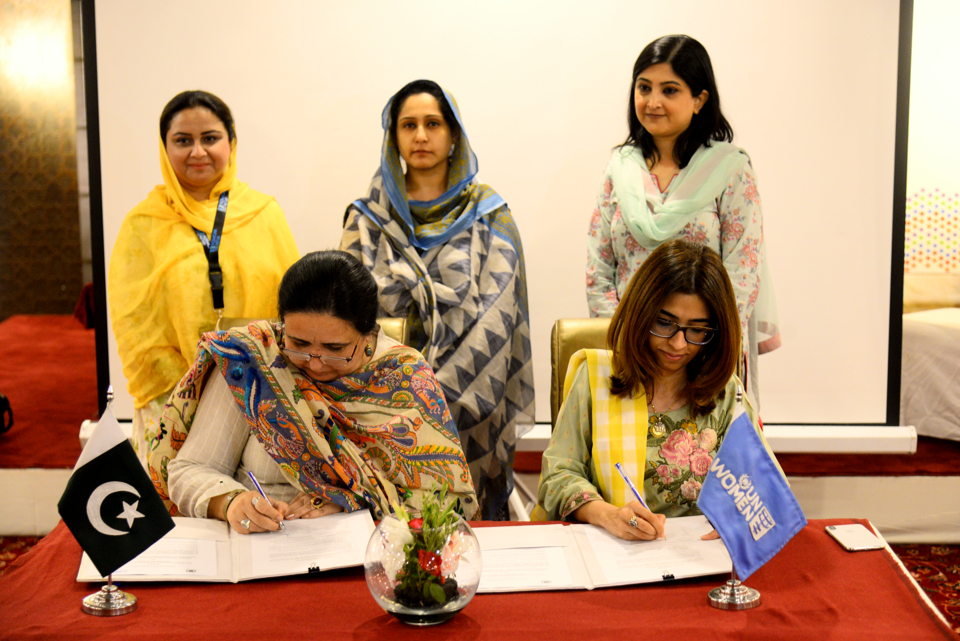
UN Women’s partnerships with these significant bodies for monitoring, investigating and addressing public complaints were formalized with the signing of Memorandums of Understanding (MoUs) in July 2019 in KP and December 2019 in Balochistan, respectively. Welcoming the collaboration, the KP Ombudsperson Rukhshanda Naz said, “With UN Women’s support, our emphasis is on the execution and smooth implementation of the Workplace Harassment Law to make sure that the environment is safe for women to reach their full potential and contribute to the economy.” Similar remarks came from the Balochistan Ombudsperson, Sabira Islam who resolved to continue joint efforts for effective implementation of Workplace Harassment Laws across Balochistan in order to enable women to reach their full potential in a safe and protective environment.”
The aim of both Ombudsperson Offices and UN Women is to work towards effective implementation of legislation by strengthening existing mechanisms, raising awareness, producing knowledge products and enhancing the capacity of Ombudsperson Offices so that incidents of workplace harassment can be eliminated.
A great deal of work has already been accomplished through these partnerships to address the situation. For the first time, a comprehensive database has been developed focusing on information about notified inquiry committees and relevant cases reported to assess the trends of sexual harassment at workplaces. So far 236 inquiry committees have been notified in different government departments across the KP province under ‘The Protection against Harassment of Women at Workplace Act, 2010’.
UN Women and the Office of the Ombudsperson KP have jointly developed a Toolkit on “Understanding Sexual Harassment, Legal Provisions, Roles of Duty Bearers and Right Holders. Officially launched on 25th of June 2020, the Toolkit provides a comprehensive resource to train and build the capacity of inquiry committee members and other stakeholders on the law and redressal mechanisms for dispensation of justice to the complainants.
Country Representative a.i. UN Women Aisha Mukhtar, at the Toolkit launch, said, “Sexual harassment at the workplace is a pervasive issue that hampers women’s economic empowerment and their access to employment opportunities. It affects not only victims and their families but also the whole economy in the form of a decline in productivity and job losses. In order to expand economic opportunities for women and increase women’s labor force participation, we must endeavor to make workplaces safer for women. This toolkit is an important step towards achieving this goal.”
Around 113 officials from government line departments and institutions and academia from Khyber Pakhtunkhwa and Balochistan have been trained in three workshops, and are now further building the capacity of stakeholders in both provinces. UN Women is also supporting the two provincial Ombudsperson Offices in developing material for awareness-raising through a variety of channels to be used for broader dissemination across public and private sector entities in the province.
The outbreak of the COVID-19 pandemic required a strong response to the issues and needs that come up in the humanitarian settings regarding sexual harassment, exploitation and abuse. The focus has now shifted to addressing the unique challenges that women and girls of Pakistan are experiencing due to the pandemic. Ombudsperson Office KP and UN Women have arranged joint online sessions to explore strategies in order to discuss women protection issues with a special focus on gender-based violence to ensure that women and girls are not left behind in the COVID-19 response.
Challenges like prevention of sexual exploitation and abuse require consistent efforts. Compounded by situations like the outbreak of COVID-19, these challenges demand a holistic approach with a reaffirmed commitment that involves each stakeholder and works for transforming mindsets and the way we approach others especially women and girls.
Aisha Mukhtar, reiterating UN Women’s commitment towards strengthening institutions and mechanisms for preventing and addressing sexual harassment at workplace, underlines, “Women have a legal right to live and work in a safe environment. Keeping the unique challenges posed by COVID-19 in mind, UN Women Pakistan is committed to continue its efforts for expanding our collaborations and partnerships and broadening the scope of activities for materializing the dream of a society free from harassment, exploitation and abuse.”
